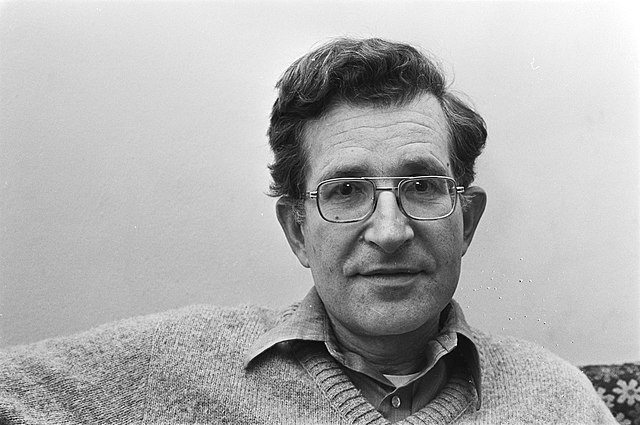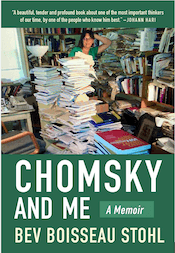
Martin Wolf, associate editor and chief economics commentator at the Financial Times, speaking in Washington, DC
Review of The Crisis of Democratic Capitalism by Martin Wolf (Penguin Random House, 2023).
The front cover of Martin Wolf’s new book, The Crisis of Democratic Capitalism, is emblazoned with a red flying wedge straight out of an early Soviet-era constructivist poster. However, the book’s author is more interested in saving capitalism than burying it.
Wolf, the chief commentator of the Financial Times on economics, is arguably one of the most influential media defenders of the neoliberal order, and certainly the most nuanced. He sets out his case in an intellectual doorstop — nearly five hundred pages long — of the kind made popular by Thomas Piketty.
Yet verbosity is not always proof of a sound argument, and that proves to be the case here. Wolf is a brilliant journalist and commentator, but his attempt at outlining a blueprint for a Neoliberalism 2.0 gets lost in its own labyrinthine contradictions.
Fruits of Neoliberalism
To give Wolf his due, he knows something has gone very wrong with the global order. Instead of delivering “prosperity and steady progress,” the democratic capitalism he defends has generated “soaring inequality, dead-end jobs, and macroeconomic instability.”
As someone whose Jewish parents barely escaped the Holocaust, with many family members who did not, Wolf is genuinely worried that this economic failure may be fermenting a dangerous populist reaction against liberal democracy:
People expect the economy to deliver reasonable levels of prosperity and opportunity to themselves and their children. When it does not . . . they become frustrated and resentful. . . . Predictably, they frequently blame this disappointment on outsiders — minorities at home and foreigners.
As a good liberal, Wolf spends time undermining many of the standard populist tropes, deploying a mass of empirical data. Although this aspect of the book sometimes offers more quantity than quality, he does see off the Trumpian–Brexiteer lie that immigration is the principal destroyer of Western blue-collar jobs.Martin Wolf’s attempt at outlining a blueprint for a Neoliberalism 2.0 gets lost in its own labyrinthine contradictions.
Wolf shows that there is in fact scant evidence of immigrants reducing wage levels — largely because they play the role of complements rather than substitutes in metropolitan labor markets. Studies also indicate that the net fiscal contribution of immigrants tends to be positive because they come to find work.
Wolf is willing to countenance the possibility that mass immigration, when confined to already densely populated areas, can produce “congestion costs.” However, the reality is that the decay of urban centers in the United States and UK has nothing to do with mass immigration and everything to do with the flight of the middle class to the suburbs. The resulting contraction of the local fiscal base leads to the underfunding of education and infrastructure.
Populism and Class Power
There is a clue here to the weakness in Wolf’s overall thesis. Basically, he is blaming the threat to liberal democracy jointly on the rage of the dispossessed traditional working class and on the ideological “wokeism” of young professionals whose standard of living has flatlined in the era after the 2008 financial crisis.
According to Wolf, enraged blue-collar workers have turned to Donald Trump and Nigel Farage while the naive youth have turned to Bernie Sanders and Jeremy Corbyn. Both sides are united in wanting to see off liberal democracy and free trade in favor of demagogic nationalism, authoritarianism, and economic protectionism. To save the liberal order, he argues, we need to reinvigorate democratic institutions and reboot economic growth, giving everyone a share in the capitalist pie.If the system failed to deliver, which it did, that was the result of conscious choices by the ruling elite.
Yet instead of blaming the old working class for their political stupidity — which is actually what Wolf is implying — or the youth for their left-wing naivety, we need to restore class and class power as the key component of the present crisis. This, of course, is the ingredient that is absent from Wolf’s approach.
The missing actors in Wolf’s worldview are the strata of middle-class professionals in Western society who have appropriated the massive economic gains generated in the globalist expansion of the period between roughly 1990 to 2008. These are the beneficiaries of neoliberalism and its intellectual exponents, of whom Martin Wolf is ideologue in chief. If the system failed to deliver, which it did, that was the result of conscious choices by the ruling elite.
Winners and Losers
Globalization has profoundly altered the structure and nature of this Western ruling elite. The process has resulted in a massive excess of surplus value beyond what can be productively invested and valorized. This excess has underwritten the emergence of a superlayer of unnecessary functionaries, pseudomanagers, financial-service employees, influencers, academic ideologues, luxury-consumption providers, and pampered cultural workers.
The members of this layer are collectively referred to as the New Petty Bourgeois (following Nicos Poulantzas) or the New Professional Middle Class. At one end (for example, computer programmers and IT engineers), this social layer clearly merges into the scientific proletariat. At the upper end, however, among financial executives, hedge fund managers, and so on, it is clearly bourgeois.Wolf’s analysis lacks the deeper sociopolitical apparatus required to explain the rise and emergent crisis of the Western neoliberal order.
In the mass, this parasitical group has all the unstable characteristics of any middle social layer: individualistic, narcissistic, and politically vacillating. Its direct interests lie with maintaining the neoliberal order.
Unfortunately, Wolf’s analysis lacks the deeper sociopolitical apparatus required to explain the rise and emergent crisis of the Western neoliberal order, particularly the power structure and vested interests that sustain it. He substitutes a rather long-in-the-tooth Anglo-Saxon empiricism for his lack of theory. But his facts end up marooned.
Rentier Capitalism
For instance, Wolf happily quotes a McKinsey Global Institute report, which shows that between 2005 and 2008, around 70 percent of all households in the high-income economies had a flat or falling real income (before any redistribution through state transfers). In other words, the neoliberal order at its height produced zero improvement for most people’s lives. On the other hand, the share of pre-tax national income going to the top 10 percent of the population in America increased by a whole nine percentage points between 1981 and 2008, to a staggering 44 percent of the total.
This is, of course, devastating evidence of a rapacious Western elite strata plundering the gains of technology and free trade to amass wealth on a scale not seen in previous capitalist cycles. But Wolf is more concerned — threatened perhaps? — by the populist, plebeian reaction to this development than he is interested in pursuing an investigation of its cause.The neoliberal order at its height produced zero improvement for most people’s lives.
True, he devotes a chapter to the rise of what he calls “rentier capitalism.” Wolf explains that rising global savings have combined with the concentration in incomes to produce a glut of cash seeking risky investment outlets in the financial sector. As Wolf ruefully notes:
This explosion of financial activity has not done much for productivity growth . . . much of the most highly rewarded activity of the sector consists of what are likely to be . . . zero-sum activities: hedging against volatility created by financial activity itself; invention of complex derivatives that conceal embedded risks; and outright gambling.
He concludes by arguing that the financial sector “wastes both human and real resources” and is “in large part a rent-extraction machine.” Karl Marx could not have put it so succinctly (and Wolf is fond of quoting Marx and even Leon Trotsky).
At no point, however, does Wolf suggest that this parasitical financial edifice has directly given rise to vested interests that are determined to ensure their own survival and that of the system itself, no matter how dysfunctional. Indeed, after the recent collapse of Silicon Valley Bank (SVB), Wolf could still write disingenuously in the Financial Times that it “may be amusing that those shrieking for a rescue this time have been the libertarians of Silicon Valley.” Yet he backed the extension of US deposit insurance to every SVB depositor, no matter how large. The system protects itself.
Myths of Free Trade
This myopia leaves Wolf in the position of implicitly criticizing anyone who opposes the system. He sees no future in “populist” economics that eschew free trade and free movement of capital and spends a lot of time bashing Trump’s protectionism, suggesting it will lead the US toward a sort of Latin American–style banana republic.
If that is the case, then why has Joe Biden kept most of the Trump-era prohibitions on trade with China and even extended them? Why has a supposedly orthodox American president introduced the biggest peacetime industrial subsidies, in a bid to repatriate offshore microprocessor production back to the continental United States? Could it possibly be that the high-tech liberals who fund the Democratic Party are just as interested in protecting their markets and supply chains as a folksy populist? (And that includes those SVB depositors.)Wolf’s section on ‘what went wrong’ is devoid of any reference to the bank-saving austerity policies which fell most heavily on the poor.
The problem with Wolf’s vision of Liberal Goodies and Populist Baddies is laid bare when it comes to the role that government austerity policies since 2008 have played in depressing living standards and household incomes. Indeed, you can search in vain through Wolf’s voluminous index for the very word “austerity.”
His section on “what went wrong” is devoid of any reference to the bank-saving austerity policies which fell most heavily on the poor. Nor does he mention the quantitative easing by central banks which effectively printed money to subsidize shareholder wealth. The loss of prosperity — or even hope for prosperity — that Wolf blames for the rise of authoritarian populism was no accident. It was the result of austerity and quantitative easing policies that were employed after 2008 to cope with the aftermath of the speculative bubble.
Busking While Rome Burns
Since he avoids discussing the class causes of the failure of neoliberalism, making populism a scapegoat instead, we should not be surprised that Wolf’s solutions to the “crisis of democratic capitalism” are misdirected as well as banal. In fact, he spends rather more effort on criticizing left or leftish solutions than in putting forward his own.
For example, he offers a long, ill-tempered critique of the notion of a universal basic income (UBI) as an antidote to poverty and social insecurity. According to Wolf, a UBI would be “inescapably wasteful” and “unaffordable” (unlike bank bailouts). At best, Wolf offers a reheated and half-hearted form of Keynesianism as a way to shore up aggregate demand, although he delivers some characteristic rants against Modern Monetary Theory or the idea of printing our way out of poverty.
Of course, none of this confronts the central weakness of a system based on endless capital accumulation: What do you do when you run out of ways to invest that return the average or better rate of profit? For Wolf, the word “planning” is anathema.Wolf spends rather more effort on criticizing left or leftish solutions than in putting forward his own.
When it comes to political reform, Wolf pays homage to the usual suspects like better civic education, devolution to local government, and rooting out corruption. He is on more interesting ground when he suggests replacing the present Western representative model with a hybrid electoral system.
According to Wolf, this would involve three chambers: a directly elected, freely contested legislature; an appointed chamber (“House of Merit”) that advises and has the power of delay, like the House of Lords in the UK; and a “House of the People” chosen by lot (like a jury) with a power of delay and the right to initiate binding, popular referendums on any subject. The idea would be to reduce the influence of special interests and revive popular engagement with politics.
Yet one can’t help thinking that Wolf is being disingenuous. The possibility of anything this complicated or radical being introduced anywhere is zero. He is busking intellectually because he has no real practical alternative to the present situation.
Out of Ideas
From Israel to Hungary and from the United States to the UK, populists are using voter-suppression tactics to strengthen their electoral position. Meanwhile, the ruling neoliberal elite is exploiting its media control, access to personal data, and lobbying power to make democracy a controlled game in which the political agenda and potential solutions are circumscribed to the “reality” of capitalism and its needs. Capitalist democracy has become a hollow shell while the populists are bent on knocking down the remnants.
Wolf is right to worry about the possible return of the jackboot and the concentration camp. But he cannot recognize that popular disenchantment with capitalist democracy will not be cured by introducing more such democracy, which will by definition exclude the interests of the mass of the population. If we are going to think the unthinkable, then we should remember that we now possess the social media tools to revive the stalled Marxist project of abolishing the state itself and introducing direct democracy.Capitalist democracy has become a hollow shell while the populists are bent on knocking down the remnants.
In his forgotten past, Wolf was a member of the youth section of the British Labour Party, the Labour Party Young Socialists, which was then under the influence of an assortment of Trotskyist groups. Today he dismisses the idea of “socialist democracy” as a chimera: “Such a combination of economic and political power will end up, sooner or later, like the Venezuela of Hugo Chávez and Nicolas Maduro.”
For Wolf, the only possible world system is the neoliberal model he has preached for and defended in the pages of the Financial Times. Twenty years ago, Wolf wrote a book entitled Why Globalization Works. This latest work is his mea culpa. But far from being an intellectual tour de force, The Crisis of Democratic Capitalism reveals that Martin Wolf has run out of ideas.
CONTRIBUTOR
George Kerevan is a former member of the British parliament who served on its oversight committee for banking and bank regulation. He is on the board of the Scottish antiestablishment website CONTER.




